One-word Broadway shows captivate audiences with their brevity and impact‚ offering a glimpse into the essence of the performance. These concise titles have become a hallmark of modern theater‚ reflecting both artistic vision and cultural relevance. Their simplicity aids in marketing and memorability‚ making them a powerful tool in the world of Broadway.
Overview of the Concept
The concept of one-word Broadway shows revolves around the use of single-word titles to encapsulate the essence of a production. These titles are designed to be memorable‚ evocative‚ and impactful‚ often reflecting the core theme or emotion of the show. By condensing the title to one word‚ creators aim to grab attention and convey complexity succinctly. This trend has gained popularity as it aligns with modern preferences for brevity and clarity. One-word titles also simplify marketing efforts‚ making shows easier to promote and remember. The concept highlights the power of language in theater‚ where a single word can symbolize an entire narrative or emotional journey‚ resonating deeply with audiences and critics alike.
Importance of One-Word Titles in Broadway
The significance of one-word titles in Broadway lies in their ability to immediately capture the essence of a show. These concise titles are designed to resonate with audiences‚ conveying the core theme or emotion of the production. They simplify marketing efforts by being easily memorable and shareable. Additionally‚ one-word titles often carry a level of intrigue that can pique curiosity and attract diverse audiences. Their brevity allows for creative flexibility‚ enabling shows to stand out in a competitive landscape. Moreover‚ these titles reflect the evolving trends in theater‚ where clarity and impact are prioritized. Overall‚ one-word titles are a strategic and artistic choice that enhances both the appeal and accessibility of Broadway productions‚ making them a vital element in the world of live theater.

History of One-Word Broadway Shows
One-word Broadway titles have long been a tradition‚ symbolizing theatrical innovation and artistic expression. Their popularity stems from their ability to succinctly convey themes or emotions‚ resonating deeply with audiences for decades.
Evolution Over Time
The use of one-word titles in Broadway shows has evolved significantly over the decades. Early shows often favored longer‚ more descriptive titles‚ while modern productions embrace brevity for impact. This shift reflects changing audience preferences and the desire for memorable branding. The rise of digital media has further amplified the effectiveness of one-word titles‚ making them easier to market and share across platforms. As theater continues to adapt to cultural and technological advancements‚ the trend of concise‚ powerful titles is expected to endure‚ remaining a key element in Broadway’s creative landscape.
Key Milestones in the Use of One-Word Titles
The use of one-word titles in Broadway shows has marked significant milestones‚ reflecting shifts in theatrical storytelling and audience engagement. The early 20th century saw a rise in concise titles‚ with shows like Cats and Chicago setting the stage for modern trends. The 1980s and 1990s solidified this approach‚ with productions like Miss Saigon and Rent gaining widespread recognition. In recent years‚ hits such as Hamilton and Dear Evan Hansen have further popularized the one-word title phenomenon. These milestones highlight how concise titles have become a powerful tool for capturing attention and conveying themes in contemporary theater.
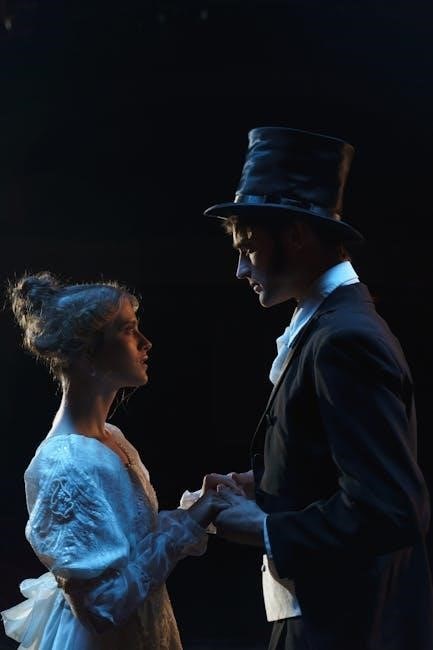
Popular One-Word Broadway Shows
Iconic Broadway shows like Cats‚ Chicago‚ and Hamilton showcase the power of one-word titles‚ capturing themes and emotions succinctly while leaving a lasting impression on audiences worldwide.
Examples of Iconic One-Word Shows
Some of the most renowned Broadway productions have adopted one-word titles‚ such as Hamilton‚ Chicago‚ and Cats‚ which are instantly recognizable and culturally significant. These titles encapsulate the essence of the shows‚ making them memorable and impactful. For instance‚ The Lion King and Wicked have become synonymous with their respective stories‚ while Les Misérables and Mamma Mia! evoke strong emotional connections. The use of one-word titles not only reflects the core theme but also enhances marketing and branding efforts‚ ensuring these shows remain etched in the minds of audiences worldwide.
Why These Shows Chose One-Word Titles
Creators of Broadway shows often opt for one-word titles to convey the essence of the production succinctly. This approach enhances memorability and marketing‚ as shorter titles are easier to recall and promote. It also allows the audience to focus on the core theme or emotion of the show without distraction. Additionally‚ a single word can evoke powerful imagery and intrigue‚ drawing potential viewers. This strategy has proven effective in capturing attention and building brand recognition‚ making one-word titles a strategic choice for many successful Broadway productions. The simplicity and impact of these titles contribute significantly to their enduring popularity and cultural resonance.

Listing One-Word Broadway Shows
A curated list of one-word Broadway shows includes iconic productions like Hamilton‚ Wicked‚ Rent‚ and Chicago. These titles encapsulate the essence of their stories‚ making them memorable and impactful.
Alphabetical List of One-Word Shows
Here’s an alphabetical list of popular one-word Broadway shows: Aladdin‚ Chicago‚ Hamilton‚ Hadestown‚ Kinky‚ Mamma‚ Moulin‚ Rent‚ Wicked. These shows are renowned for their captivating titles that reflect their themes. Each name is memorable‚ making it easier for audiences to recognize and remember the production. The simplicity of these titles often enhances marketing and branding efforts‚ while also conveying the essence of the story. This list highlights the diversity and creativity of Broadway productions‚ showcasing how a single word can encapsulate an entire narrative. The alphabetical arrangement provides a clear and organized way to explore these iconic shows.
Categorization by Genre
Broadway shows with one-word titles can be categorized into various genres‚ offering diverse experiences for audiences. Musicals like Hamilton and Wicked dominate‚ blending music and storytelling. Plays such as Hadestown and Rent focus on dramatic narratives. Classics like Chicago showcase timeless themes‚ while Modern Hits such as Mamma Mia bring contemporary twists. Family-Friendly shows like Aladdin cater to all ages with magical themes. This categorization helps audiences identify their preferences‚ making it easier to choose productions aligned with their interests. Each genre highlights the versatility of one-word titles‚ proving their effectiveness in conveying the essence of the performance. This approach ensures a broad appeal‚ satisfying diverse tastes and preferences in theatergoers.
Timeline of One-Word Show Premieres
The premiere of one-word Broadway shows spans decades‚ reflecting evolving theatrical trends. Iconic productions like Chicago (1975) and Cats (1982) set the stage for this concise titling approach. The 1990s saw the rise of Rent (1996) and Mamma Mia (1999)‚ blending modern themes with catchy titles. In the 2000s‚ Wicked (2003) and Hamilton (2015) became cultural phenomena‚ solidifying the impact of one-word titles. Recent years have introduced Hadestown (2019) and One-word Broadway shows have revolutionized theater marketing‚ making productions instantly memorable and culturally resonant. Their brevity reflects modern storytelling trends‚ enhancing audience engagement and artistic expression. One-word titles hold profound cultural significance in Broadway‚ encapsulating themes and emotions succinctly. They resonate deeply with audiences‚ often becoming synonymous with the era’s zeitgeist. These titles transcend language barriers‚ making productions universally relatable. Their brevity allows for immediate recognition and memorability‚ fostering a strong connection with the cultural landscape; By distilling complex narratives into a single word‚ they emphasize core messages‚ creating a lasting impact on theater history and popular culture. This approach reflects the evolution of storytelling‚ where simplicity and clarity are valued‚ ensuring that Broadway remains a vibrant and influential art form globally. Audiences often perceive one-word Broadway titles as bold and impactful‚ sparking curiosity and anticipation. The brevity of these titles creates an air of mystery‚ engaging viewers and encouraging them to learn more. Their simplicity makes them easy to remember‚ fostering word-of-mouth promotion and viral appeal. This concise approach resonates well in modern culture‚ where clarity and immediacy are valued. Additionally‚ one-word titles often reflect the core theme or emotion of the show‚ aligning audience expectations with the performance’s essence. This alignment can enhance the emotional connection and overall viewing experience‚ making one-word titles a powerful tool in capturing and retaining audience interest effectively. Creating a list involves identifying shows with one-word titles‚ categorizing them by genre or era‚ verifying accuracy‚ and organizing them for easy reference and accessibility. Compiling a list of one-word Broadway shows requires thorough research. Start by exploring databases like Playbill and Internet Broadway Database (IBDB) for historical records. Cross-reference with official Broadway websites and archives to ensure accuracy. Utilize secondary sources‚ including theater reviews‚ articles‚ and academic papers‚ to verify show titles. Additionally‚ analyze Broadway playbills and programs for original title listings. Leverage online communities‚ forums‚ and fan-created lists for crowd-sourced insights. Finally‚ consult theater historians and experts to fill gaps and validate findings. This multi-faceted approach ensures a comprehensive and accurate list of one-word Broadway shows. To ensure accuracy and relevance‚ specific criteria guide the inclusion of shows in the list of one-word Broadway titles. First‚ the show must have an official one-word title‚ verified through reputable sources like Playbill or IBDB. The title should be universally recognized and associated with its Broadway production. Shows with numbers‚ symbols‚ or multiple words are excluded. Additionally‚ the production must have premiered on Broadway‚ excluding off-Broadway or regional productions. Revivals are considered only if they retain the original one-word title. Finally‚ the list prioritizes shows with cultural or historical significance‚ ensuring a meaningful and impactful compilation of one-word Broadway shows. Organizing a comprehensive list of one-word Broadway shows requires efficient tools and methodologies. Spreadsheets like Excel or Google Sheets are ideal for cataloging‚ sorting‚ and filtering shows by title‚ genre‚ or premiere date. Databases such as Playbill or IBDB provide verified information for accuracy. Project management tools like Trello or Asana can help track progress and categorize shows into genres or timelines. Additionally‚ PDF editors like Adobe Acrobat or Canva enable the creation of visually appealing‚ shareable documents. These tools ensure the list is well-structured‚ accessible‚ and easy to update‚ making it a valuable resource for Broadway enthusiasts and researchers alike. Identifying one-word Broadway shows presents challenges‚ such as ambiguous titles‚ overlooked productions‚ and verifying accuracy. These issues require meticulous research to ensure a comprehensive and reliable list. A key challenge in identifying one-word Broadway shows lies in ambiguous title classifications. Some shows may have titles that are interpreted differently‚ such as hyphenated words or phrases that blur the line between single and multi-word titles. For example‚ Les Misérables is often considered a single-word title‚ yet it contains multiple syllables and words in French. Additionally‚ symbolic or abstract titles like Hamilton or Wicked may not explicitly convey their thematic depth‚ leading to debates about their classification. These ambiguities complicate the process of creating a definitive list‚ as varying interpretations of what constitutes a “one-word” title can result in inconsistencies across different sources. This subjectivity often leads to discrepancies in lists‚ highlighting the need for clear criteria to ensure accuracy and uniformity. Compiling a comprehensive list of one-word Broadway shows often reveals overlooked or lesser-known productions that deserve recognition. For instance‚ Passing Strange (2007) and Rent (1996) are iconic yet sometimes underappreciated for their cultural impact. Other shows like Spring Awakening (2006) and Next to Normal (2009) highlight the diversity of one-word titles in conveying complex themes. These productions‚ while not as mainstream as others‚ contribute significantly to Broadway’s artistic landscape. Their unique titles often reflect their innovative storytelling‚ making them hidden gems worth exploring. Despite their lack of widespread fame‚ these shows demonstrate the versatility and creativity of one-word titles in capturing the essence of a performance. They remind us that Broadway’s richness lies not only in its blockbusters but also in its lesser-known treasures. Updating a list of one-word Broadway shows requires ongoing research and attention to new productions. As Broadway continues to evolve‚ new shows with single-word titles emerge‚ making regular updates essential. This involves monitoring official Broadway announcements‚ theater news‚ and reviews to identify newly premiered shows. Additionally‚ verifying each show’s title accuracy ensures the list remains reliable. Community contributions and user submissions can also play a role in maintaining the list’s comprehensiveness. Tools like spreadsheets or databases help organize and categorize the shows‚ ensuring the list stays user-friendly. By periodically reviewing and refreshing the list‚ it remains a valuable resource for theater enthusiasts and researchers alike. This process guarantees the list reflects the latest trends and additions to Broadway’s vibrant landscape. One-word titles are concise‚ memorable‚ and impactful‚ capturing the essence of a show. They enhance marketing‚ branding‚ and audience recall‚ making productions instantly recognizable and culturally significant. One-word titles offer significant marketing advantages‚ enhancing brand recognition and audience engagement. Their brevity makes them easily memorable‚ allowing shows to stand out in crowded markets. These titles often encapsulate the core theme or emotion‚ creating an immediate emotional connection. This clarity aids in promotional materials‚ from posters to digital ads‚ ensuring the show’s name is both striking and unforgettable. Additionally‚ concise titles facilitate social media buzz and word-of-mouth promotion‚ driving ticket sales and fostering a strong brand identity. This strategic use of language ensures that one-word titles are not just artistic choices but also powerful marketing tools that resonate deeply with audiences. Like Broadway‚ film and TV shows often use one-word titles for brevity and impact. These titles capture the essence of the story‚ making them memorable and engaging across all media. One-word titles are not unique to Broadway; they are also prevalent in film and television. Movies like Inception and Interstellar use single words to create intrigue and simplify marketing; Similarly‚ TV shows such as Stranger Things and Narcos rely on brevity for impact. These titles often reflect the core theme or genre‚ making them memorable and easy to discuss. The trend underscores the universal appeal of concise naming in entertainment‚ mirroring Broadway’s approach. By adopting one-word titles‚ creators across mediums aim to capture attention and build brand recognition‚ ensuring their work stands out in crowded markets. This cross-media consistency highlights the cultural significance of simplicity in storytelling and branding. Literature also embraces the power of one-word titles‚ as seen in works like 1984 and Slaughterhouse-Five. These titles are concise yet evocative‚ capturing the essence of the narrative. Authors use single words to convey complex themes‚ creating an immediate emotional or intellectual connection with readers. Like Broadway shows‚ literary one-word titles are designed to be memorable and thought-provoking. This trend reflects a broader cultural preference for simplicity and clarity in communication. By distilling a story or concept into a single word‚ writers aim to intrigue and engage their audience‚ much like the strategic use of one-word titles in theater. This approach highlights the universal appeal of brevity in artistic expression. Audience expectations vary significantly between Broadway shows and other media. Theatergoers often anticipate a unique‚ immersive experience‚ with one-word titles heightening intrigue and setting the tone. In contrast‚ films and TV shows may rely on more descriptive titles to attract diverse audiences. Literary works also differ‚ as readers might expect a single word to encapsulate a complex narrative. Broadway’s live nature demands immediate engagement‚ whereas other mediums have more flexibility in title complexity. These differences highlight how one-word titles are tailored to specific audience needs‚ emphasizing the distinct cultural and artistic contexts of each medium. This adaptability ensures that one-word titles remain effective across various forms of storytelling and audience preferences. The future of one-word Broadway shows likely involves blending traditional storytelling with modern digital trends‚ ensuring titles remain concise yet impactful for diverse audiences and platforms. Modern Broadway shows increasingly favor one-word titles‚ reflecting a trend toward brevity and impact. This shift aligns with the digital age’s preference for concise communication‚ making shows more marketable and memorable. One-word titles often encapsulate the essence of the performance‚ whether through evoking powerful imagery or hinting at central themes. This trend also highlights the importance of branding‚ as shorter titles are easier to promote and recognize. The rise of social media has further amplified this approach‚ as succinct titles are more shareable and memorable. By embracing this style‚ Broadway shows aim to captivate audiences quickly while maintaining artistic depth and emotional resonance. Future Broadway productions are expected to continue the trend of one-word titles‚ as they offer a powerful and memorable way to capture a show’s essence. Producers may increasingly choose titles that evoke strong emotions or hint at complex themes‚ appealing to diverse audiences. With the rise of digital platforms‚ the need for titles that are easily shareable and searchable will likely influence this trend. Additionally‚ one-word titles allow for creative marketing strategies‚ making them a practical choice for producers aiming to stand out in a competitive industry. As Broadway evolves‚ the use of concise‚ impactful titles is predicted to remain a key element in show branding and promotion. Digital media has significantly influenced the preference for one-word Broadway show titles‚ as shorter‚ more concise names are easier to share and search online. With the rise of social media and online ticket sales‚ producers aim for titles that quickly grab attention and trend easily. One-word titles are ideal for hashtags‚ memes‚ and viral discussions‚ making them more marketable in a digital age. Additionally‚ the global reach of digital platforms encourages simpler‚ universally understandable titles that transcend language barriers. As a result‚ the shift toward one-word titles reflects the broader trend of adapting entertainment to the demands of the digital landscape‚ where brevity and memorability are key to capturing audience attention. One-word Broadway shows leave a lasting impact‚ blending cultural significance with memorability. Their concise titles resonate deeply‚ reflecting the evolution of theater in the digital age effectively. One-word Broadway shows are a compelling phenomenon‚ capturing the essence of performances through concise titles. These titles enhance memorability‚ marketing‚ and cultural resonance‚ reflecting artistic vision and audience connection. From iconic productions like Hamilton to modern hits‚ one-word titles have evolved‚ embracing innovation and cultural shifts. They simplify communication while conveying deep meaning‚ making them a cornerstone of Broadway’s identity. This approach not only highlights creativity but also aligns with audience preferences for brevity and impact. The trend continues to inspire‚ ensuring one-word titles remain a dynamic and enduring part of Broadway’s legacy. One-word Broadway shows leave an indelible mark on theater culture‚ blending simplicity with profound meaning. Their ability to encapsulate complex narratives and emotions in a single word underscores the power of concise communication. As Broadway evolves‚ the trend of one-word titles is likely to endure‚ reflecting both artistic innovation and audience preferences. These titles not only enhance memorability but also serve as a testament to the creativity and vision of playwrights and producers. By distilling the essence of a performance into a single word‚ Broadway continues to captivate audiences‚ ensuring that one-word shows remain a timeless and integral part of its legacy.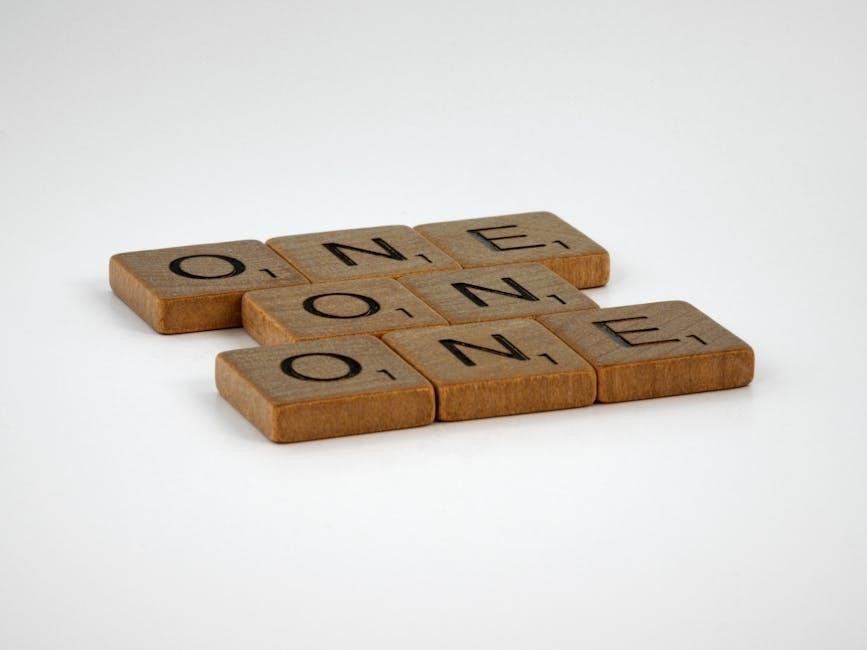
Impact on Broadway Culture
Cultural Significance of One-Word Titles
Audience Reception and Perception

How to Create a List of One-Word Broadway Shows
Research Methods for Compiling the List
Criteria for Inclusion in the List
Tools for Organizing the List
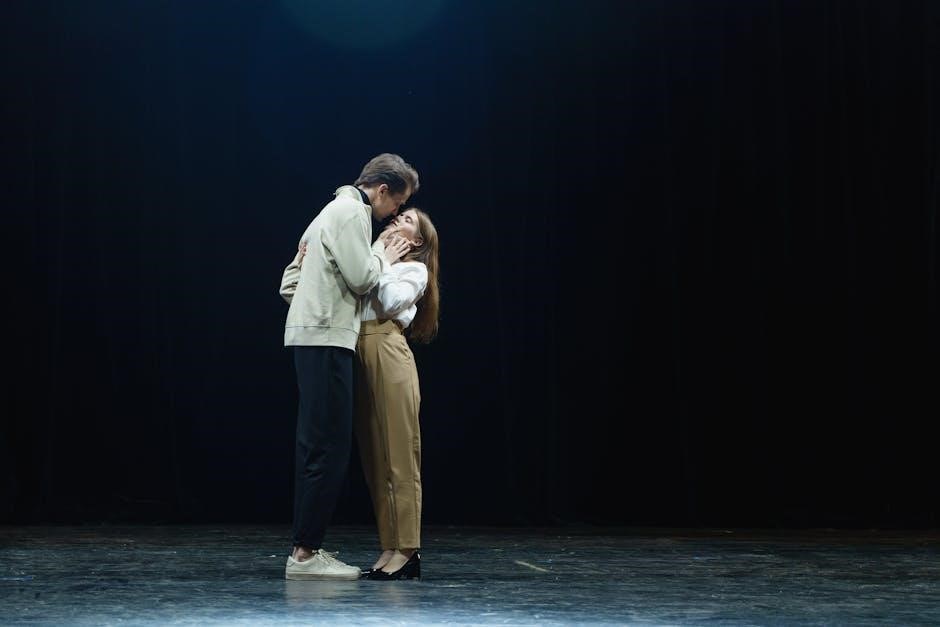
Challenges in Identifying One-Word Shows
Ambiguities in Title Classification
Overlooked or Lesser-Known Shows
Updating the List Over Time
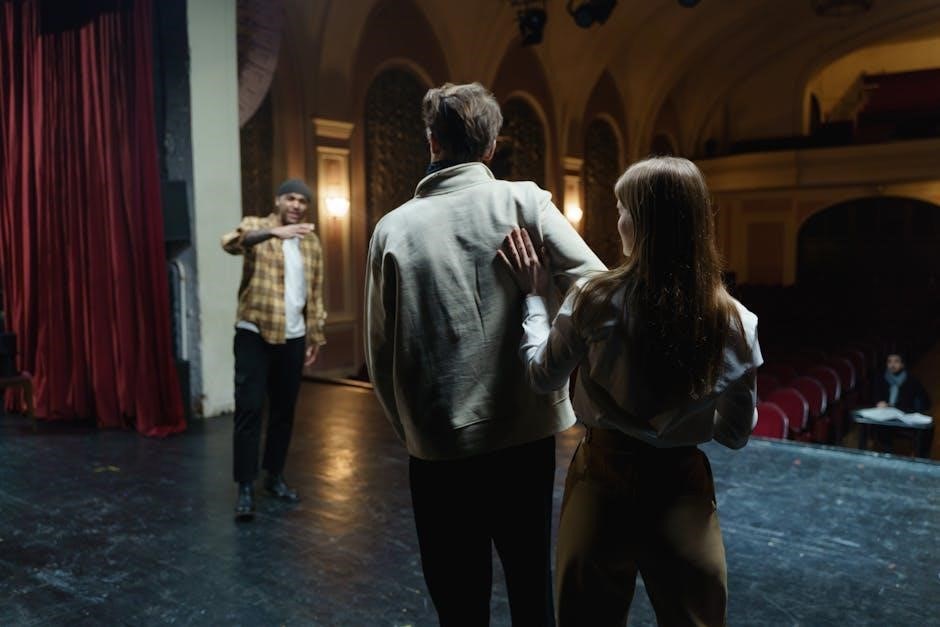
Importance of One-Word Titles
Marketing and Branding Benefits
Memorability and Recognition
Artistic and Creative Significance
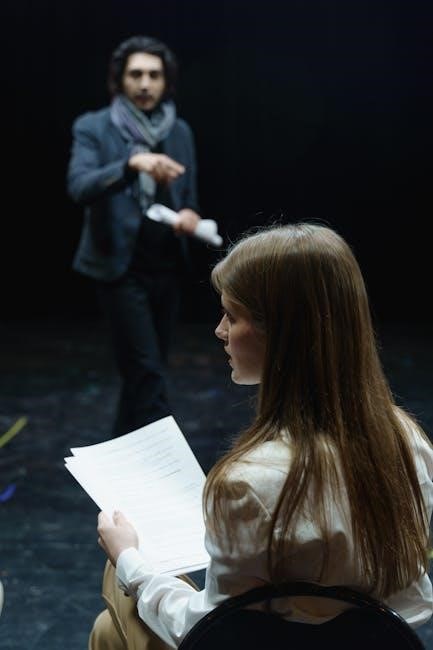
Comparison with Other Media
One-Word Titles in Film and TV
Similar Trends in Literature
Differences in Audience Expectations

Future of One-Word Broadway Shows
Trends in Modern Theater Titles
Predictions for Upcoming Shows
Impact of Digital Media on Title Choices
Final Thoughts on One-Word Broadway Shows


